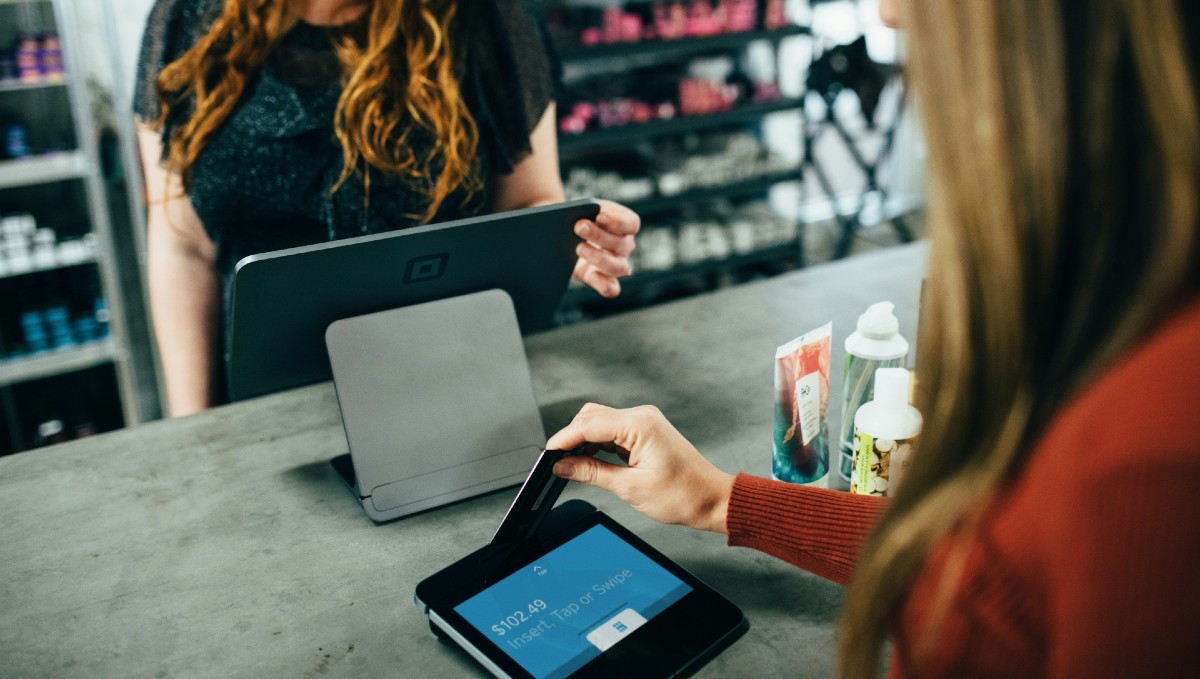The student life is the first taste of true freedom most people get - no more teachers peering over your shoulder or homework being checked every day. It's also often the first 'living out of home' experience for many. Some even refer to their student days as the best time of their lives, as it hits that sweet spot between parental dependence and 'slaving away' for the next 40 years.
It's a time you should be enjoying yourself, but it's also a time when you need to learn to be responsible with your money. Managing money as a student can be tough. When you factor in study, time allocated to work is limited, and it is well acknowledged that living on youth allowance is below the poverty line.
One option some students consider is getting a credit card. While this can provide short-term financial flexibility, it also comes with risks. Before signing up, it's important to understand the advantages and potential downsides of having a credit card as a student.
What is a student credit card?
Once upon a time, student credit cards were a thing. They were designed for young adults with limited income, offering lower fees and smaller credit limits than standard cards. But in recent years, major banks have quietly pulled the plug on these products.
Commonwealth Bank, Westpac, ANZ, and Bendigo Bank have all discontinued their student credit card offerings. The few remaining options have either been rebranded or made available to a broader audience, meaning there's no such thing as a true "student credit card" anymore.
So, what does that mean for students who need a credit card? Instead of looking for student-specific products, you'll need to consider general low-rate credit cards - the ones designed for borrowers with lower incomes or limited credit history.
These low-rate cards can still be useful for students, as they often:
-
Have lower income requirements (sometimes as low as $15,000 per year)
-
Offer lower credit limits to prevent overspending
-
Provide interest-free periods to avoid unnecessary charges
However, they're not tailored for students specifically, so approval criteria may still require proof of income - whether from casual work, government payments, or a combination of both.
Do students need a credit card?
Credit cards are for convenience - they shouldn't be a necessity. No matter whether you have a credit card or not, you should never spend what you can't afford. With common sense budgeting, you can always get by on your trusty debit card, as this only allows you to spend money you have.
So no, students do not need a credit card. But there are a few reasons why having a credit card could be convenient for a student.
For instance, in student life, casual work can be irregular and youth allowance claims can take time to be processed, so at times it can be hard to come up with the cash for important study purchases such as textbooks and laptops.
Outside of tuition itself, textbooks are the biggest expense for uni students. In their 2024 Textbook Affordability Project, the James Cook University library found that the average price of prescribed texts for 72 core first-year subjects was $119 per book, potentially leading to annual costs of up to $1,500 per student. That's a lot of money spent on books which many students barely read yet still manage to pass their subjects.
Also, a decent laptop for taking notes (or making memes) in a lecture can also set you back at least a few hundred dollars, which isn't something every student has lying around.
If you're a student who knows you won't have the cash to pay for these big-ticket education items until later in the month, a credit card could be used to purchase them now so you don't have to fall behind in your studies.
On top of study costs, students have to find room in their limited budgets to pay for general lifestyle expenses like groceries, transport, household appliances and furniture. Paying with a credit card can save you from having to go without such necessities for weeks on end.
But students should beware of their credit debt spiralling out of control. Only spend what you can afford to pay off before the end of the credit card's statement period, so you avoid being charged interest.
The traps of credit cards for students
Interest
Impulse shopping is a very real thing for students, and having a credit card on you makes it so much easier to spend with it. And if you don't pay off that spend? You're charged interest.
It might interest you (pun intended) to know that the average credit card holder's debt is nearly $3,317 per person, according to the most recent Reserve Bank data. How long would it take you to pay off $3,317? Now take interest into account.
Credit cards have a minimum monthly repayment between 2-3% - you can't pay any less than this. So if you had $3,317 worth of debt and you only repaid the minimum, it would take you more than ten years to repay it without interest. With interest, it's an entirely new story.
Let's say your credit card has an interest rate of 20% (roughly the average). On a $3,317 balance, you'd get the following:
|
Repayment Type |
Interest Paid ($) |
Time to Repay Debt |
|---|---|---|
|
Minimum Repayments (2.5% or $20 - whichever is greater) |
$12,753 |
39 years |
|
Higher Repayments ($100/month) |
$1,431 |
4 years |
|
Even Higher Repayments ($200/month) |
$522 |
1 year, 8 months |
So you can see a clear relationship between making higher repayments and paying less interest. Prolonging the length of time results in more interest being paid, and any debts you add to this balance will further increase your interest repayments.
Paying the balance off in full every month can save you from these interest costs, so don't build up a balance you can't pay off.
To avoid this problem, you could ask for a lower credit limit.
Fees
We touched before on the fact that the ideal credit cards for students should have a low annual fee. This is the fee charged by the bank for keeping the account open, and it's very possible to get a card that doesn't have one.
There are credit cards out there that have annual fees higher than $700+ dollars (almost $60 a month). Unless you're quite well off already, you shouldn't be looking at one of these cards as a student - they're targeted more towards big spenders who like to take advantage of premium features like access to airport lounges and complimentary travel insurance.
A low (or no) annual fee credit card can help keep costs down as a student. Credit cards marketed specifically to students can have annual fees of around $30.
We've also written a comprehensive guide on other credit card fees and what you can expect to pay for them. Did you know you can also be charged a late payment fee of up to $35? You do now.
Not choosing the right card
A lot of people make the mistake of just picking the first card they see and sticking with it without properly comparing their options. Thanks to our friend the internet, it's pretty easy to compare credit cards on things like fees, interest rates, features or credit limits.
For students, small differences in interest rates and fees can add up over time. A lower interest rate can significantly reduce the cost of carrying a balance, while a longer interest-free period can provide extra breathing room for repayments.
When selecting a credit card, it's important to consider:
-
Interest rates - A high rate can make even small balances expensive over time.
-
Annual fees - Some student cards offer waived or reduced fees in the first year.
-
Interest-free days - A longer interest-free period can help avoid paying interest if you clear the balance in time.
-
Eligibility requirements - Some student credit cards have age or study requirements.
Why some students may need a credit card
For students, a credit card can be a handy financial tool - when used wisely. It's not just about having a bit of extra spending power; a credit card can help with managing expenses, building a credit history, and even handling emergencies. But before diving in, it's important to understand why a student might need one in the first place.
Unexpected expenses
Life happens, and sometimes it gets expensive. Whether it's an unexpected medical bill, a flat tire, or an urgent trip home, having access to a credit card can be a lifesaver when money is tight. Instead of scrambling to borrow cash or waiting for payday, a credit card can cover the cost upfront - just as long as it's paid off before interest kicks in.
Building a credit history
One of the biggest perks of getting a credit card early is that it helps students start building a credit history. Banks and lenders look at credit reports when approving loans, so a student who uses their card responsibly (read: makes repayments on time and doesn't max it out) could set themselves up for better financial opportunities in the future. However, with the advent of comprehensive credit reporting (which accounts for other financial commitments such as phone, internet and other utility bills) this isn't particularly necessary anymore, and simply having a credit card can actually make you appear as a riskier prospect to a lender.
Managing cash flow
Not every student has a steady income. Some rely on casual jobs, while others get financial support from parents, which doesn't always come in predictable amounts. A credit card can help smooth out these ups and downs, making it easier to cover essentials while waiting for the next paycheck or allowance to come through. Of course, this only works if the balance gets paid off regularly.
Potential Traps of Credit Cards for Students
Credit cards can be a great tool for students, but they can also be a fast track to financial trouble if not used carefully. While they offer flexibility and convenience, there are a few common traps that can turn a handy financial backup into a serious burden.
High interest rates
One of the biggest dangers of credit cards? Interest. If a balance isn't paid off in full each month, interest charges start stacking up - and fast. Suddenly, that $50 takeaway order or last-minute online purchase costs way more than expected. Student credit cards often have higher interest rates, so even small balances can quickly snowball if left unpaid.
The minimum repayment trap
Paying only the minimum amount each month might seem like an easy way to stay on top of debt, but in reality, it's a financial quicksand. By only covering the bare minimum, most of the payment goes toward interest rather than reducing the actual debt. This can leave students paying off the same purchase for years, with the total amount owed ballooning over time.
Impulse spending
Credit cards make spending almost too easy. Tap here, swipe there, it barely feels like you're spending real money. But that convenience can lead to unnecessary purchases, especially when it comes to things like late-night food orders, gaming, or splurging on clothes. Before swiping, students should ask themselves: "Would I buy this if I had to pay cash right now?" If the answer is no, it might not be worth it.
Hidden fees
Not all credit card costs are obvious. Beyond interest, there are other fees lurking in the fine print: annual fees, late payment fees, foreign transaction charges, and even cash advance fees. These extra costs can add up quickly, eating into a student's already tight budget. A "free" credit card might not be so free once those hidden fees start rolling in.
Over-reliance on credit
A credit card should be a backup, not a lifeline. Relying too much on credit instead of proper budgeting is a slippery slope that can lead to long-term financial stress. It's tempting to use a card to bridge the gap when money runs low, but without a solid plan to pay it off, debt can spiral out of control. A good rule of thumb? If a purchase can't be paid off by the next billing cycle, it might be worth rethinking.
Savings.com.au's two cents
When it comes to credit cards for students, try to apply Jeff Goldblum's logic from Jurassic Park:
[You] were so preoccupied with whether or not [you] could, that [you] didn't stop to think if [you] should
There's a very strange culture in Australia that almost seems to encourage reckless credit card spending to 'treat yo self', but the reality is this is very dangerous to do with a credit card. Your ability to use one responsibly depends on your income and budgeting skills, and let's face it, as a student you're probably not going to be flushed with cash.
We won't say you shouldn't get a credit card - they can be useful when used correctly. But if you feel you need one, you should consider a card with low fees and low interest rates that you can use for emergencies, and make all your other purchases with your own hard-earned money. Use this time as a student to practise money discipline and build some good savings habits. There'll be plenty of time to splash the cash later.
First published on November 2018
Image from MD Duran on Unsplash



 Denise Raward
Denise Raward

 Emma Duffy
Emma Duffy